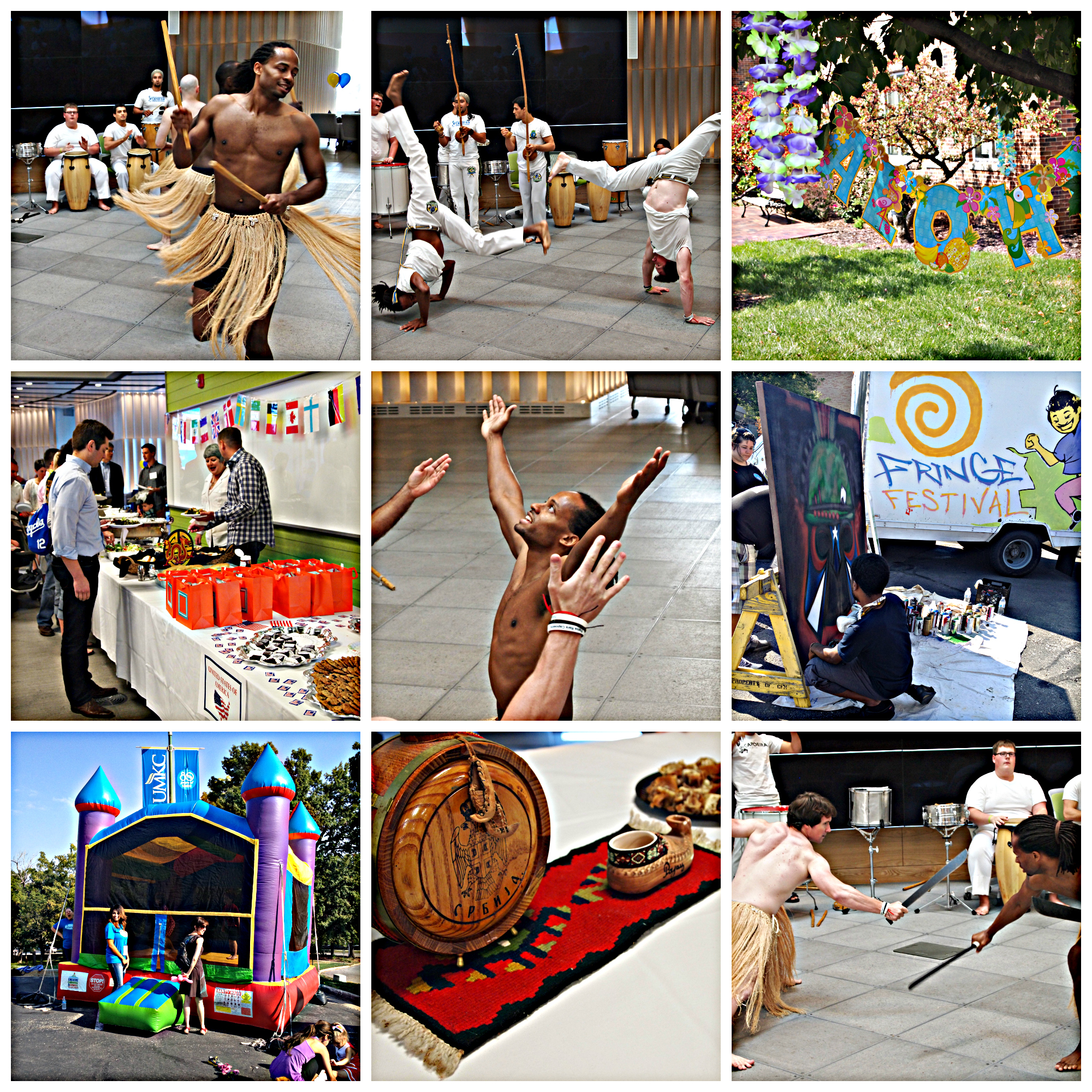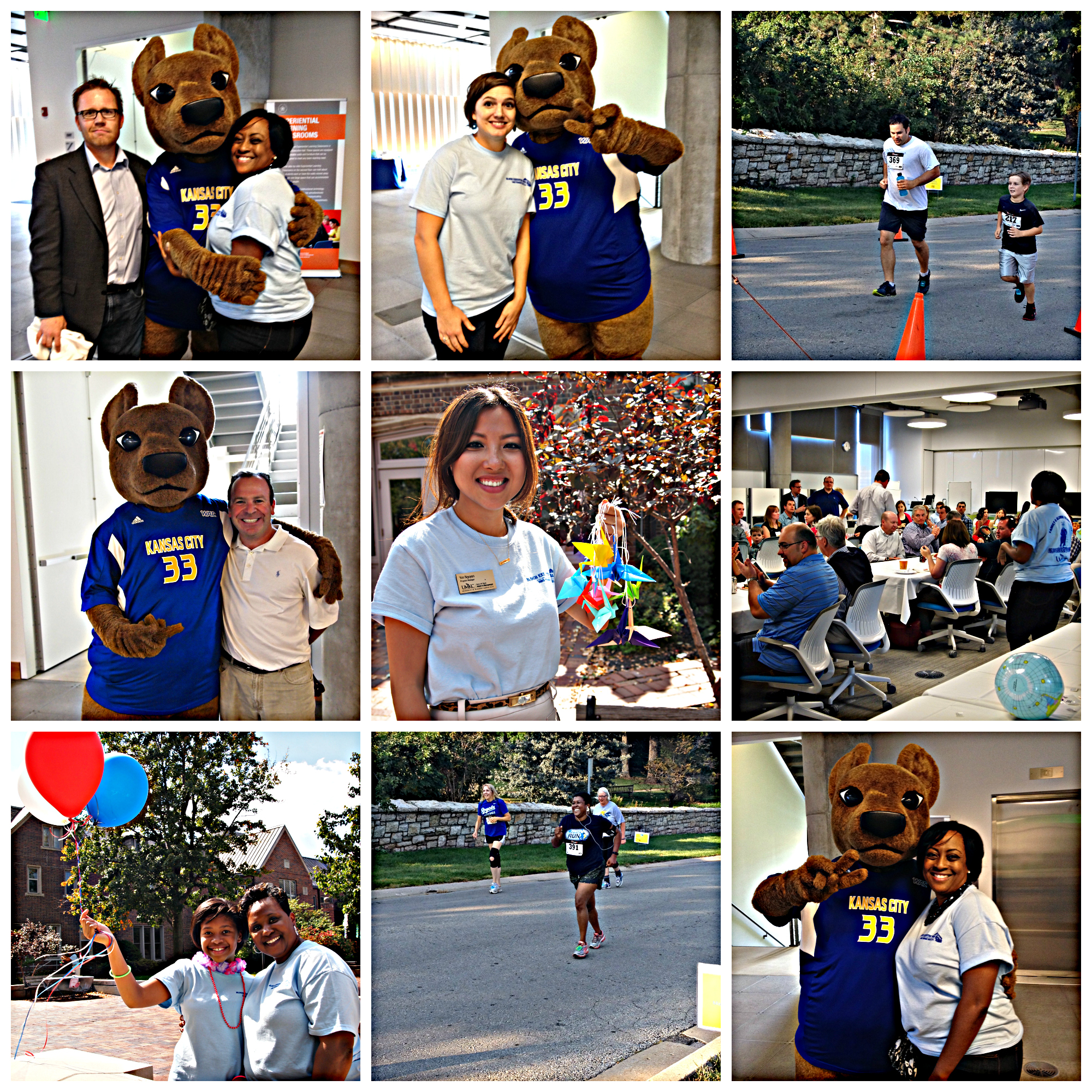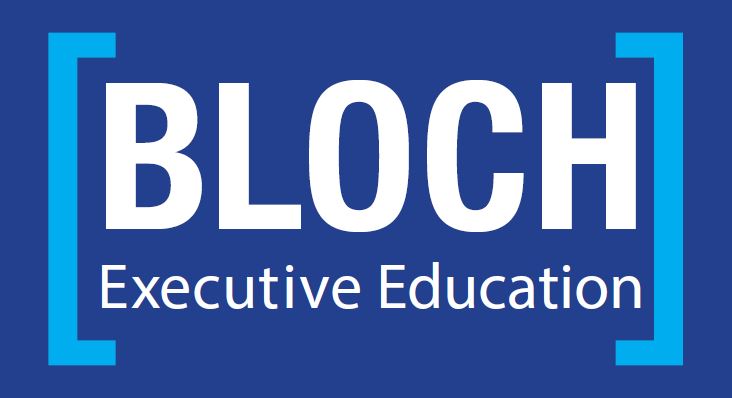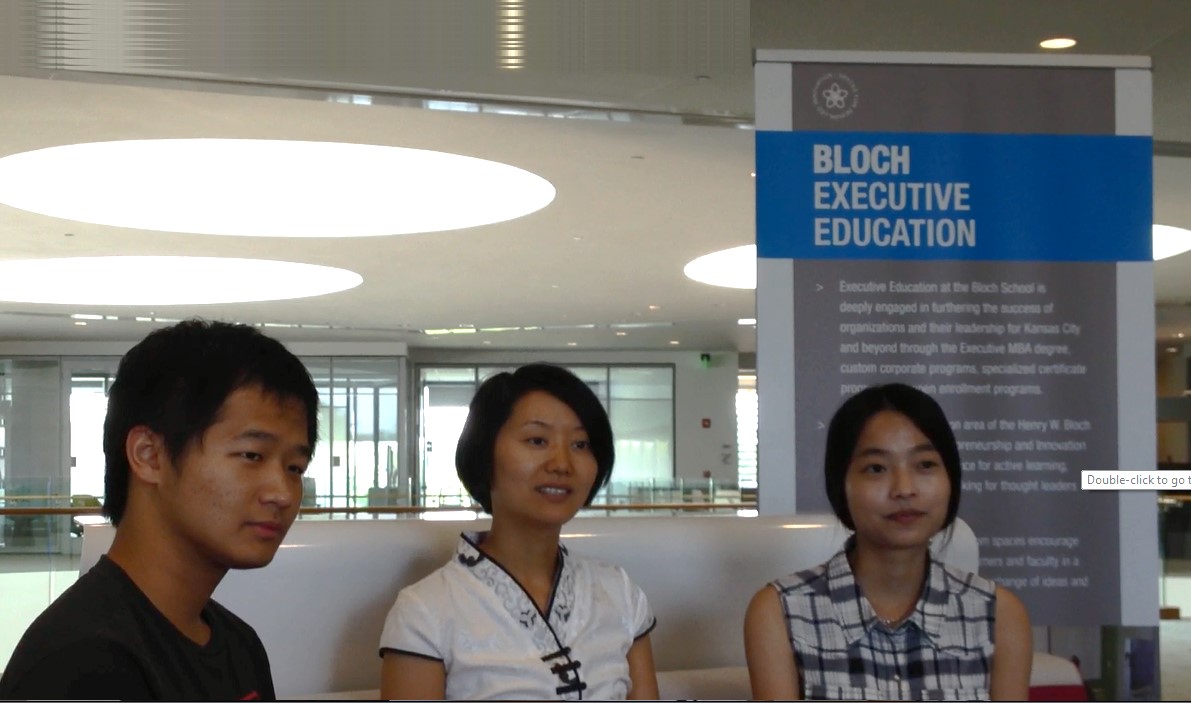Home » 2014
Yearly Archives: 2014
International Program participants are inspired by American learning style
Some people may not be aware that the Bloch School delivers international programs as part of its non-degree executive education offerings. International programs expose international executives, scholars, and students to the U.S. education system, entrepreneurship, as well as business operations. Participants learn firsthand from top professors, universities and corporations on how to nurture innovation and instill the American entrepreneurial spirit.
One of our 2014 student international program included students from China and Indonesia for the Bloch Summer Entrepreneurship Experience through the American Study Abroad Program (ASAP). During this program, students broadened their understanding of entrepreneurship and innovation in America through observing practices in the field; meeting and networking with top scholars and practitioners; and participating in experiential learning activities.
At the end of the program, International Program Principal Huan Ding sat down to talk with a couple of the students, Ning Zeng and Bobang Lu and the adult leader Lingquao Zhu to learn about their experience.
Here are some excerpts from that interview.
Huan: What did you learn the most duringthe program?
Ning: I learned the most from the simulation game. I felt like I was a real entrepreneur running a business. The game gave us the opportunity to learn how to manage a company and we gained a better understanding on how a company operates on a daily basis. During the game, we worked as a team to solve hypothetical problems that might come up in a real business setting.
Lu: When I started the program, I knew nothing about business because I am a law student. The business lectures and the simulation game were very new to me. The game and classes gave me the idea that I could build my own business, a law firm, in the future even though I am not in business management. I have already started planning what my business will look like in the future.
Huan: You have been studying here for almost a month and you have experienced the American
learning style. Compare the American learning style to the Chinese learning style. Are there any differences? Which one is your ideal learning style?
Lu: I like the American learning style better. It is different from the Chinese learning style in many ways. For example, in China we learn by working on textbook problems. The goal is to memorize the questions and answers. Here in the US, we have been encouraged to have more group discussions and exchange thoughts with our teams.
Huan: Do you have more work to do in the US or China?
Lu: There might be more outside work to do here in the US. However, we gain more from the thinking process, and the knowledge will stay with us for a long time. In China, knowledge is hard to retain since we are just memorizing the answers and not really digesting the concepts.
Ning: I agree with Lu. I do like the learning style better here. In China, the educational system does not require us to digest the concepts or understand the purpose of learning. All we need to do is earn a good grade on exams. Therefore, we gain a lot of knowledge but do not understand the meaning behind it. With the US learning style, I have gained deeper thoughts on what we are learning and have discovered that a lot of course materials are connected. I have a bigger picture on how to apply course concepts into my thinking and how they contribute to outcomes.
Lingquao: This is a very good experience for the students. They are motivated to learn independently instead of being forced to learn by teachers.
Huan: Which activities or events did you enjoy the most outside of the classroom?
Ning: I liked the College Basketball Experience at the Sprint Center the most. I believe this is a universal sport that is popular in every country.
Lu: I was impressed by how friendly Americans are. They will smile at each other even they have never met. I think this is a great habit to start every morning.
Lingquao: The College Basketball Experience was definitely a remarkable event. I rarely play basketball in China but I still joined the team to play basketball here. Last but not least, shopping was an exciting experience for us!
The International Student Exchange programs include a combination of classroom learning, experiential visits around the city, and cultural immersion activities such as the College Basketball Experience at Sprint Center. These very important programs support cultural understanding and strategically support the Bloch School’s strategy of being known around the world for excellence in experiential learning and entrepreneurship.
Executive Education in Kansas City: Insights from Kimberly Young
 Kimberly Young is the founding director of Bloch Executive Education at UMKC, which was established in 2008. Kimberly also became the Executive MBA Executive Director in 2012. She’s helped build mutually valuable partnerships between the Kansas City business community and the university through Bloch’s executive programs. In her unique roles, Kimberly has her finger on the pulse of the latest trends in talent development in Kansas City. We asked Kimberly to weigh in on executive education and Bloch’s role in serving that niche community.
Kimberly Young is the founding director of Bloch Executive Education at UMKC, which was established in 2008. Kimberly also became the Executive MBA Executive Director in 2012. She’s helped build mutually valuable partnerships between the Kansas City business community and the university through Bloch’s executive programs. In her unique roles, Kimberly has her finger on the pulse of the latest trends in talent development in Kansas City. We asked Kimberly to weigh in on executive education and Bloch’s role in serving that niche community.
Through Bloch Executive Education’s custom programs, you’ve worked with some of the top companies in Kansas City and in the region, designing leadership development programs utilizing industry thought leaders at the university to fill gaps and advance organizational goals. What are some of the most common components in those programs?
Our leadership development programs are particularly unique because of our focus on understanding and application. We’re not here to only teach a concept or theory, but to help participants understand why that concept or theory is important and how it can make a difference when applied to their work. Our customized programs are co-created with our clients during a series of pre-meetings to make sure that we are delivering on the outcomes that they expect.
What are some talent development trends you’ve observed in the past few years in Kansas City?
We’re hearing Kansas City companies talk a lot about accountability, risk taking, and innovation. These competencies mean different things to different organizations, but we are very clear that these three things are key to the survival and success of our companies. If organizations are not able to create an environment in which risk-taking is rewarded and accountability is supported, leaders will not do what it takes to cultivate and exercise an innovative mindset. It’s the innovative mindset that drives leaders to scan the environment and think about the opportunities that exist in the complexity of the world today.
What is the value proposition of the Bloch Executive MBA and how is it different from its competitors?
The Bloch Executive MBA is built upon four platforms: Leadership, Civic Engagement, Innovative Mindset, and Global Perspective. The combination of these four platforms makes our program stand out from any other program in the country. We all teach leadership and many programs touch on global perspective, but to add innovation and the impact of policy on business to the foundation of the program, that is uniquely Bloch, and quite frankly, uniquely Kansas City. Our goal to become the nation’s most entrepreneurial city is evidence that our community and business leaders are already thinking this way. As for innovation, it’s the notion that understanding how to scan the environment and leverage and communicate opportunities is important for current positioning for future success. That’s how we view innovation—seeing the opportunity when everyone else sees chaos.
The Executive MBA Council reported that on average 25% of students entering an Executive MBA program in 2014 received full financial sponsorship from their employer. Bloch far exceeds that industry average. Within the Bloch Executive MBA Class of 2016, 42% of students were fully sponsored by their employers. Why do you think Kansas City employers are willing to fully sponsor the cost of a Bloch Executive MBA?
Kansas City employers understand the importance of investing in their leadership and they show it by partnering with Bloch to create a training ground for our next generation of business and civic leaders. I can’t think of a better place to do this than the very place that is the educational home to numerous entrepreneurs across the city. This is a city that believes in investing in and growing its own and we are Kansas City’s university for educating executives.
Family & Alumni Reunion Recap
The first ever Bloch Executive MBA Family and Alumni Reunion was a big hit! Alumni and their families had the chance to explore the new Bloch building, meet the Executive MBA team and current students, take a fresh look at how to craft their personal brand, network with fellow business leaders, and take in exciting sites and entertainment.
We kicked off the weekend with Doranne Hudson leading the Learning Social Navigating Workplace Politics. A couple of excerpts highlight the value alumni found in the program:
“Excellent presentation with information that is applicable to many levels of management”
“Excellent mix of research and dialogue”
You can see more of the weekend highlights from our Around the World lunch and Block Party in the photos below.



Bloch Executive Education would like to thank everyone who joined us for the Family & Alumni weekend! We enjoyed reconnecting with you and we look forward to seeing you again when we celebrate 20 years as an Executive MBA program next year! Mark your calendar for September 25-27, 2015.
Leadership Courage
Some days it’s easier to just sit back and take the road that’s been most trampled. Not sure Robert Frost would approve, but there is safety in a well carved out path…regardless if you know where it may lead. You take comfort in that decision because everyone else is heading in the same direction so you can merely put your arms out there and ride the swell. There are few obstacles because they have been removed by those in front of you. You have anticipation about what’s ahead because of the stories that are shared by your “path predecessors”. But, what if the road you are on is the wrong one? What if it’s going to a place that you don’t want to go? What then? How do you gain the clarity and courage to make a turn which could make the difference between a breakthrough innovation and losing ground?
As leaders, the key is not whether we choose the right road to begin with, but how long we stay on a dead-end path before we decide to forge a new one.
With any journey, we must have some clarity about the environment we are traveling in. In the business context, this is environmental scanning, understanding what’s around us in terms of our competitive threats and challenges, our opportunities to leverage our capabilities more efficiently, and, an understanding of any potential needs that are unfulfilled in the marketplace. All these are the signs on any path that many would miss but a proper navigator, or business leader, would notice and study and act upon.
Assess the terrain…current and ahead
What will happen if we take the road less traveled? Who will be impacted and in what ways? What if the idea doesn’t work? Or, sometimes worse, what if it does and your idea is wildly successful?
Lead with confidence and passion.
Passion can create mercy for a multitude of flaws. When we lead with passion, we believe in our actions and, more importantly, the outcome of those actions. If we can see the future and have a picture of what that looks like for the organization, we can begin to communicate the story of this view of the future and the path to get there with passion. When we communicate vision passionately, it is compelling and others can’t help but to join in achieving the common vision. Passion also implies that we have some alignment between our own personal beliefs about the vision and the goals of the organization.
Forge (and Forage) ahead
Once you’ve assessed the situation and made the decision to change course, stand behind your decision. This is different from defending. When you stand behind your decision and it’s a good one, you don’t have to hold it up to defend it. You’ll find that it stands on its own so that you can take a step back and throw out a few questions of your own while you answer inquiries from others. Be honest about the vulnerabilities of your decisions, that will help others to gain confidence that you’ve thought things through. Admit the risk in the course of action. Continue to learn along the path picking up nuggets to use when appropriate.
Leading courageously requires a spirit for adventure that not only expects, but empowers, your employees to consider taking a less populous route. In building this team of pioneers you must lead with conviction, passion and vision. Plotting the course to success is only half the journey. Providing directions through the obstacles and the set-backs effectively is what sets good leaders apart from great ones.
Enjoy the journey!
Kimberly Young
Executive Director



